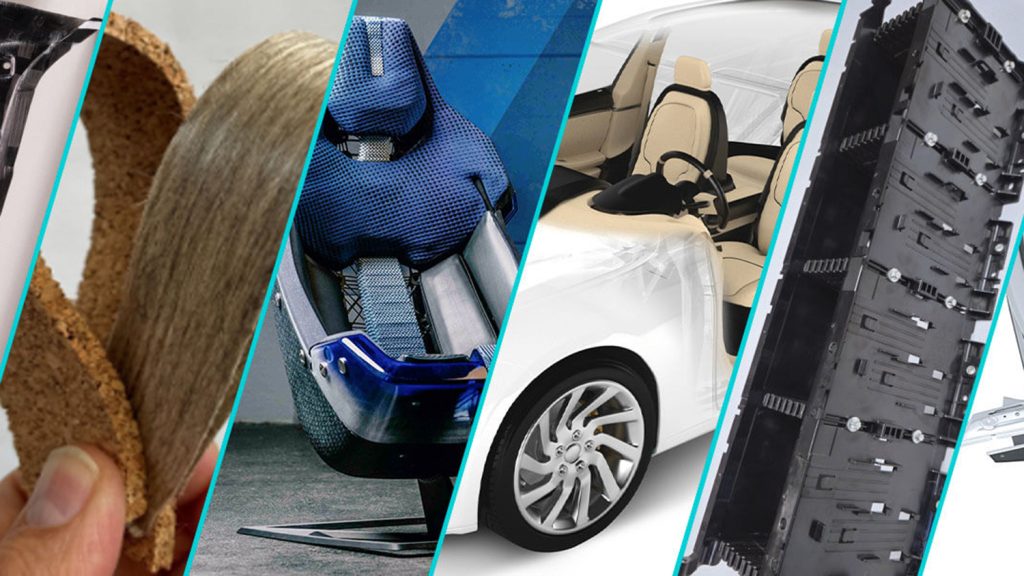The winners of the 2024 Altair Enlighten Award, for products created with a sustainable future in mind, have been announced.
The award is presented in association with the Center for Automotive Research (CAR) and ‘honours the greatest sustainability and lightweighting advancements that successfully reduce carbon footprint, mitigate water and energy consumption, and leverage material reuse and recycling efforts.’
Since its first iteration 12 years ago, the Enlighten Award has become a much sought after prize by top automotive companies and was recognised by EV Magazine as a top 10 sustainability award in 2024.
“We are thrilled to once again recognise the organisations creating a more sustainable future,” said founder and chief executive officer James R. Scapa. “This year’s winners can consider themselves the best innovators meeting those challenging targets.”
Read the complete list of all 2024 Altair Enlighten Award winning organisations and runners-up below:
Sustainable Product
Winner: DuPont – DuPont BETAMATE Broad Bake Adhesive Technology
DuPont BETAMATE Technology reduces energy use and greenhouse gas emissions during vehicle body manufacturing by allowing adhesives to cure at lower temperatures, saving energy via reduced oven temperatures and cycle times. The formulation also extends shelf life, removing the need for cold storage.
Runner-up: Bridgestone Americas – Turanza EV Tire
The Turanza EV Grand Touring Tire is manufactured with 50% renewable and recycled materials, which is one of the highest percentages among commercially available replacement tires. It features Bridgestone ENLITEN technology to improve tire lifespan. Bridgestone’s goal is for all their tires to be made from 100% renewable and recyclable materials by 2050.
Sustainable Process
Winner: BMW M GmbH, AMC GmbH, Bcomp Ltd., Gradel Lightweight Sàrl, and Lasso Ingenieurgesellschaft – BMW M Visionary Materials Seat
The BMW M Visionary Materials Seat features a monomaterial lightweight design that uses sustainable, renewable materials including recycled polyester textile, flaxfibre BioComposite, and biogene leather alternatives. Petrol-based raw materials were made from algaes and plant-based fibres. The composite can be made from carbon, basalt, glass fibre, or natural fibres.
Runner-up: Toyota Motor Manufacturing Canada and PPG Industries – EPIC200X Electrocoat
The EPIC200X Electrocoat increases corrosion protection for automotive bodies while reducing environmental impact. At the Toyota facility, the new product and its application process have enabled a reduction of 3,500 metric tonnes of CO2 emission every year. The Electrocoat also reduces the amount of applied product by vehicle by 0.6 kg.
Module Lightweight
Winner: Syensqo and General Motors – High-Performance Thermoplastic Battery Module Structure
Syensqo and General Motors’ collaborative Battery Module Structure has 37% weight reduction and 25% cost savings compared to traditional aluminium. Precision injection moulding enhances vehicle performance and streamlined component consolidation simplifies assembly. A unique cell-lock feature stabilises battery cells.
Runner-up: Toyota Motor Company, US Farathane, and BASF Corporation – Toyota Tacoma Second-Row Composite Seat Structure
Toyota’s new Seat Structure is 30% lighter than previous steel seats and 20% lighter than the current resin seats seen in the 2022 Toyota Tundra. The new structure consolidated over 55 parts into just four parts that take less time to be injection moulded.
Enabling Technology
Winner: CompositeEdge GmbH – Next-Gen Sustainable High-Performance Structures
CompositeEdge aims to minimise overall material usage by blending natural fibre composites, including flax and hemp fibres, with plastic, creating structures that can support the manufacturing of parts without additional adhesives. The use of natural fibres reduces carbon emissions and energy consumption.
Runner-up: Teijin Automotive Technologies – Fully Automated Preforming Process Enabling Complex CFRP Part
Teijin Automotive Technologies’ fully automated preforming process enables the mass production of carbon fibre preforms to be used in automotive components. The precision of the process optimises material usage and recycles waste. Compared with the previous process, which resulted in more waste due to human error, labour has been reduced by 20%.
Honourable Mention: Bemis Manufacturing Company and BASF Corporation – Large Hydraulic Tanks for Compact Excavators via BASF’s Ultramid Polyamide
Bermis Manufacturing Company and BASF Corporation developed hydraulic tanks for compact excavators using BASF’s polyamide, which reduced both in life cycle CO2 emissions and life cycle cost. By combining injection moulding and vibration welding, the approach resulted in 5% mass savings and 20% lower costs compared to traditional roto-moulding.
Future of Lightweighting
Winner: WEAV3D, Braskem, and Clemson Composites Center – Cost-Effective Lightweight Vehicle Body Structures
The collaboration developed a composite lattice-reinforced polypropylene sheet tailorable to match the performance of any vehicle body structure on the market. It is manufactured with a high-rate automated forming cycle that produces more parts using less energy. The new sheet cost 50% less and weighed 23% less than CFPA6 organosheet and weighed between 60-70% less than steel. The material also boasted a 62% reduction in trim scrap by weight.
Runner-up: Carsolia Composites Corporation – Composite Suspension Coil Spring by Carsolia
Carsolia Composites Corporation created a patent-pending composite coil spring that is 50% lighter than steel. The carbon fibre composite has 50% less CO2 equivalent per kilogram compared to steel, resulting in a 75% overall reduction of CO2 emissions. Intended for battery electric vehicle platforms, it acts as a ‘bolt-on solution’.
Responsible AI
Winner: Dow Inc. – Sustainable SPECFLEX Polyurethane Solutions
Dow Inc.’s Sustainable SPECFLEX Solutions focus on developing and using cleaner raw materials to optimise performance. These solutions achieve equivalent mechanical and ageing properties to traditional formulations, but are safer and more sustainable, with over 50% less total volatile organic compounds, 60% less formaldehyde and 80% less acetaldehyde. An AI aldehyde predictive model accelerates market response by translating non-linear features into real-world related performance features.






